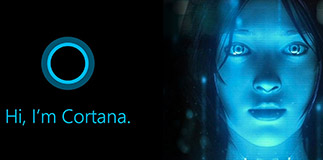I’ve got one of those tree falls in the woods questions, if a smartphone, mobile based digital assistant has better functionality than any other digital assistant on the market, but the smartphones it’s in only have 3% of the market, is it really better? That’s the question that probably has people in Redmond Washington scratching their heads.  Late last year Microsoft unveiled Cortana. Named after a virtual woman from their own Xbox blockbuster gaming franchise, Halo, the assistant’s functionality just about lives up to it’s name. There’s a lot of innovative programming in Cortana that uses data points available in other smartphones, that neither Google Now or Siri actually touch. Cortana can do a lot of things like suggest what to wear based on temperature, suggest changing calendar items based on route and distance and even suggest that their person leave work early because of traffic. Neither Google Now or Siri can do any of those things. Now if I was in marketing at Microsoft I too would want to highlight all of these amazing features. It sounds like Cortana is an amazing piece of artificially intelligent machinery. It’s the kind of digital assistant that sci-fi books were made for. But there’s a little problem. Microsoft and Windows Phone control only 3% of the market share and that’s been a pretty consistent figure since, 2011. It’s not even as if Microsoft’s Windows Phone devices were luxury or premium, All four major US carriers pretty much give away Windows Phone devices. Microsoft recently completed their transaction to buy Nokia’s hardware division and just recently released their first non-Nokia branded smartphone. It is also staggering as far as sales are concerned. Perhaps Microsoft is hoping that Cortana’s superior functionality can help move phones, after all Siri is the biggest feature that people use on an iPhone said no one ever.
Late last year Microsoft unveiled Cortana. Named after a virtual woman from their own Xbox blockbuster gaming franchise, Halo, the assistant’s functionality just about lives up to it’s name. There’s a lot of innovative programming in Cortana that uses data points available in other smartphones, that neither Google Now or Siri actually touch. Cortana can do a lot of things like suggest what to wear based on temperature, suggest changing calendar items based on route and distance and even suggest that their person leave work early because of traffic. Neither Google Now or Siri can do any of those things. Now if I was in marketing at Microsoft I too would want to highlight all of these amazing features. It sounds like Cortana is an amazing piece of artificially intelligent machinery. It’s the kind of digital assistant that sci-fi books were made for. But there’s a little problem. Microsoft and Windows Phone control only 3% of the market share and that’s been a pretty consistent figure since, 2011. It’s not even as if Microsoft’s Windows Phone devices were luxury or premium, All four major US carriers pretty much give away Windows Phone devices. Microsoft recently completed their transaction to buy Nokia’s hardware division and just recently released their first non-Nokia branded smartphone. It is also staggering as far as sales are concerned. Perhaps Microsoft is hoping that Cortana’s superior functionality can help move phones, after all Siri is the biggest feature that people use on an iPhone said no one ever.

